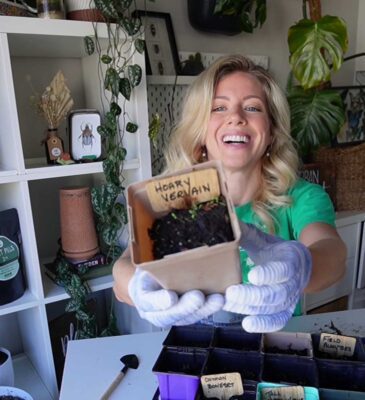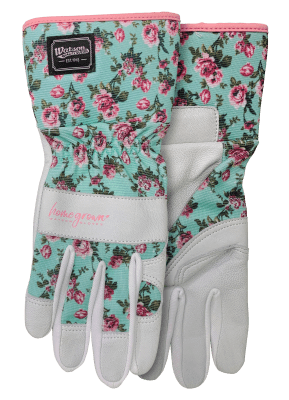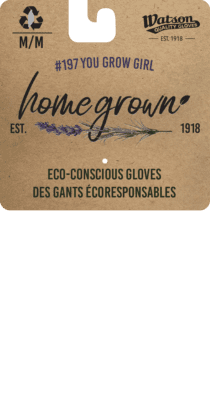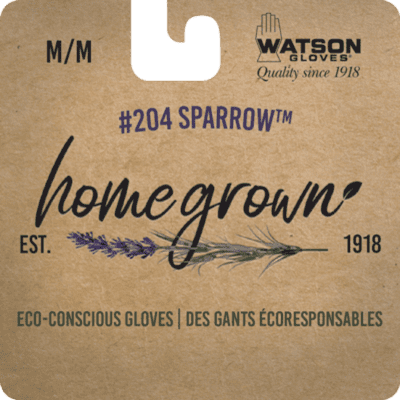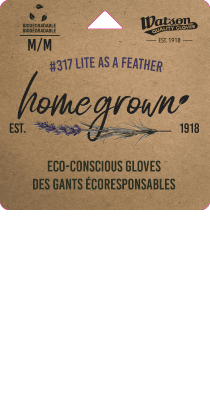
Planting Native Species with Watson Gloves and the Urban Botanist
For Earth Day, Watson Gloves has partnered with the “Urban Botanist” to support your local native ecosystem by planting species of native plants in your garden. This collaboration leverages the Urban Botanist’s expertise and Watson Gloves’ dedication to sustainability, encouraging gardeners to foster biodiversity in their own backyards. Our Homegrown™ line, featuring WasteNot™ yarn from recycled plastic bottles and landfill biodegradable Reclaim™ additives, represents our commitment to environmentally responsible products.
The Importance of Native Plants in Your Garden
Native plants like St. John’s Wort, Goldenrod, Milkweed, Camas, and Nodding Onion are more than just visually appealing—they are pivotal to sustaining local ecosystems. They provide essential habitats and food sources for wildlife, including migratory birds and pollinators. Native plants adapt well to local climates and help minimize water use too. Watson Gloves aids gardeners in cultivating these vital plants with gloves designed for both protection and sustainability.
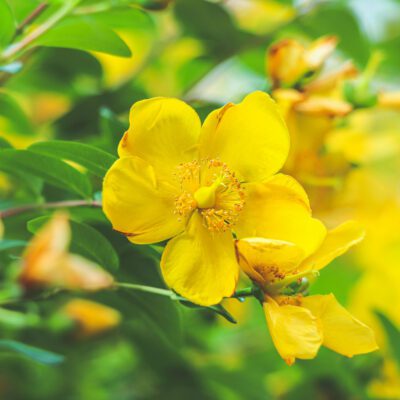
St. John's Wort
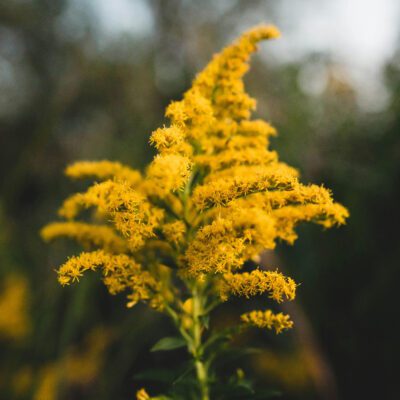
Goldenrod
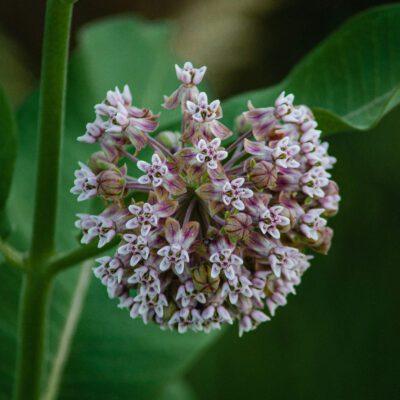
Milkweed
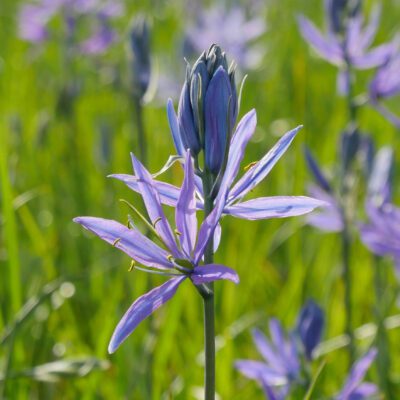
Camas
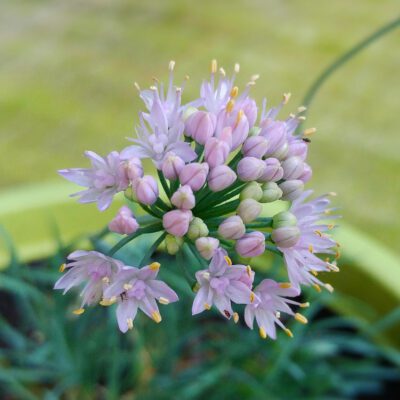
Nodding Onion
Planning and Designing Your Native Garden
To effectively plan your garden:
- Understand local soil types—organic, sandy loam, or clay—and existing drainage.
- Consider sunlight conditions and plant mature sizes for optimal spacing.
- Group plants with similar water needs to conserve resources.
Our Light As a Feather and Sparrow gloves, made from materials like recycled PET bottles, are perfect for these tasks, combining functionality with sustainability.
The Role of Watson Gloves in Sustainable Gardening
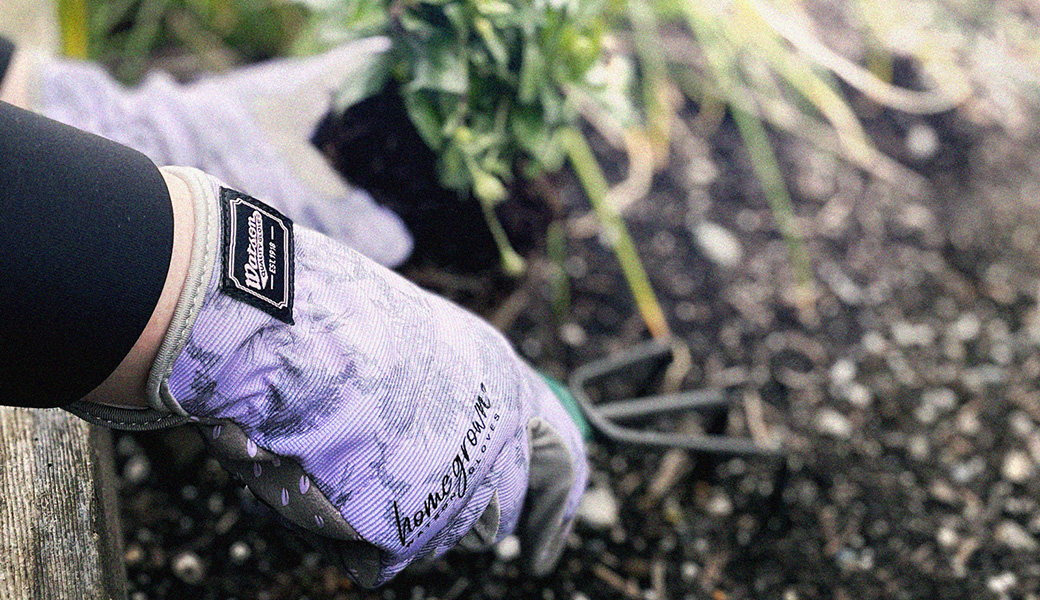
Choosing the right gloves is essential!
Lite As A Feather glove is very comfortable and incredibly lightweight, while offering excellent dexterity. Best used for light planting, these gloves are crafted from recycled WasteNot™ Yarn and include our Reclaim™ Additive to offer biodegradation in landfill.
Sparrow glove provide robust protection, ideal for handling tougher plants and soils, made from recycled WasteNot™ Yarn – repurposing two post-consumer plastic bottles per pair.
Watson Gloves not only ensures hand protection but also aligns with your garden’s ecological needs, promoting a more sustainable future.
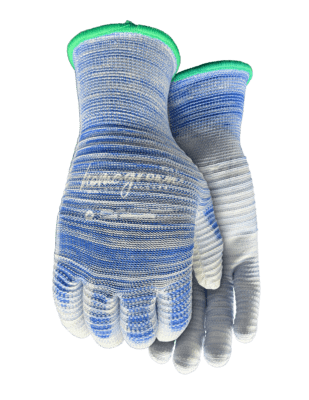
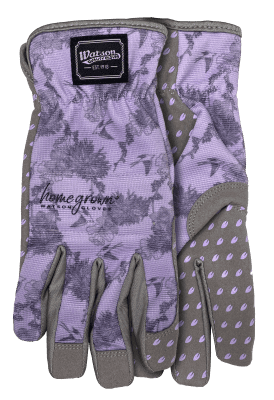
Integrating Gloves into Your Gardening Practice
Selecting the right gloves based on your gardening tasks can make all the difference. If you’re dealing with thorns and prickly plants, hard-wearing leather gloves are your best bet. For tasks in wet conditions, rubber and palm coated gloves provide good grip. And for a versatile option that handles diverse gardening needs with ease, performance gloves are your go-to-choice.
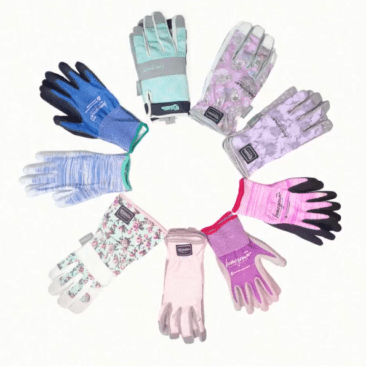
Maintaining Your Garden and Supporting Biodiversity
Once established, a native plant garden is low-maintenance but benefits from practices like mulching and wise water use, especially in container gardens. During autumn, leave fallen leaves to decompose, to provide shelter for wildlife and to enrich the soil—mirroring the sustainable life cycle promoted by Watson Gloves.
A Call to Action This Earth Day
This Earth Day, beautify your space and enhance local ecosystems by planting native species. With tools like Watson Gloves, embody sustainable practices that support your garden and the environment. We invite you to share how you’re making a difference in your gardens and continue to build a sustainable future with Watson Gloves. Let’s garden mindfully and watch as our actions help both nature and our communities flourish.
Happy Earth Day, and happy gardening!
Native Plant Gardening Cheat Sheet: Quick Checklist
Ensure a flourishing garden this Earth Day and beyond with our handy gardening checklist. Whether you’re a novice or a seasoned green thumb, this guide will help you grow a vibrant and sustainable garden:
1) Garden Planning
- Identify your garden’s soil type (organic, sandy loam, clay).
- Map out the garden to optimize light exposure and plant spacing.
- Select native plants suitable for your region and soil conditions.
2) Gardening Tools
- Best Gardening Gloves: Knowing the native plants you’re planting will allow you to choose the right glove to ensure your hands are protected.
- Have basic tools ready: spade, trowel, watering can, and pruning shears.
3) Planting
- Group plants with similar water and sun needs.
- Plant at the right depth—root crown should be at soil level.
- Water thoroughly after planting to settle the soil.
4) Ongoing Care
- Mulch around plants to retain moisture and suppress weeds.
- Implement water-wise practices—water early in the morning or late in the afternoon.
- Check plants regularly for pests and diseases—natural remedies preferred.
5) Seasonal Maintenance
- In autumn, leave fallen leaves on the ground to decompose naturally.
- Prune dead or diseased branches and spent blooms to promote new growth.
6) Supporting Biodiversity
- Include plants that provide food and habitat for wildlife (e.g., flowering plants for pollinators).
- Avoid using pesticides to protect the native insects and birds.
By following this checklist, you can ensure your garden not only looks beautiful but also contributes positively to the local ecosystem. Remember, every small action can make a big difference—start with your garden this Earth Day!
197 You Grow Girl
197
You Grow Girl
WasteNot™ spandex back made from 96% recycled PET bottles Dryhide™ water resistant full-grain goatskin leather palm Hooded fingertips, knuckle bar… Read more »
204 Sparrow
204
Sparrow
WasteNot™ spandex back made from 96% recycled PET bottles Microfibre palm with silicone printed palm Hooded fingertips and padded knuckle… Read more »
317 Lite As A Feather
317
Lite As A Feather
15gg polyester seamless knit shell made with WasteNot™ yarn is comprised of 50% (+/- 2%) recycled post consumer PET bottles… Read more »



